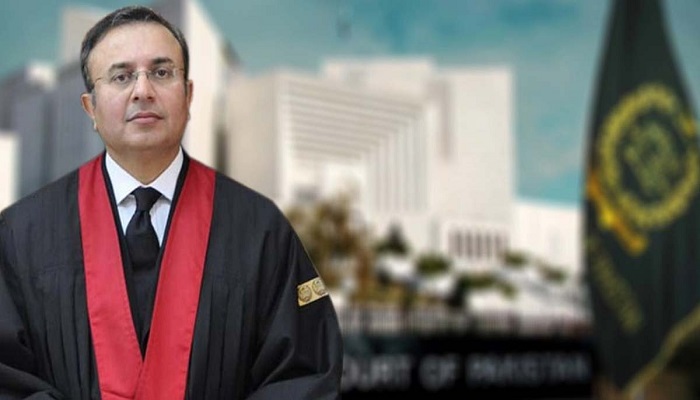ISLAMABAD: Senior puisne judge Justice Mansoor Ali Shah has raised concerns about the recently promulgated Supreme Court (Practice and Procedure) Amendment Ordinance, which affects the court’s operations, including the formation of benches. In a letter to the Supreme Court secretary, Justice Shah expressed his reservations about the reconstitution of the judges’ committee just hours after the ordinance was enacted, which led to the removal of Justice Munib Akhtar from the committee.
Last week, Chief Justice of Pakistan (CJP) Qazi Faez Isa appointed Justice Amin-Ud-Din Khan to the three-member committee, replacing Justice Akhtar shortly after the new law came into effect. The amended ordinance grants the CJP the authority to nominate a judge to the committee if a member is absent and assigns the CJP additional powers to assign cases.
Justice Shah, in his letter, questioned the rationale behind the removal of Justice Akhtar, the second senior-most judge, without explanation. He also criticized the decision to skip the next senior-most judge and instead appoint the fourth senior-most judge, calling this “cherry-picking” and an “undemocratic display” of power, which the Act had aimed to prevent. He referenced the Full Court Bench ruling in the Raja Amer case, which sought to curb such unilateral actions.
Justice Shah stressed the importance of collegial decision-making within the judiciary, arguing that concentrating administrative powers in one person, like the CJP, contradicts democratic governance and judicial fairness. He cited the Supreme Court’s own decision in the Raja Amer case, which upheld the constitutional validity of the Act. The ruling emphasized that Article 191 of the Constitution gives the Supreme Court the primary authority to make rules for its procedure, with legislative power as a secondary check, used only when necessary for the public interest.
He also noted that the Act had improved access to justice, promoted transparency, and strengthened the independence of the Supreme Court. Justice Shah cautioned that any attempt by Parliament to undermine the judiciary’s independence would be addressed by the Court, as outlined in the Raja Amer decision.
Justice Shah further questioned the urgency behind the ordinance’s promulgation, arguing that no immediate need had been demonstrated to bypass the usual legislative process. He called for a full court meeting to review the ordinance, highlighting the importance of independence, transparency, and collegiality, especially in light of the Court’s ruling in Raja Amer. He warned that decisions made by the reconstituted committee could compromise the court’s credibility and violate the Full Court’s decision.
In conclusion, Justice Shah stated that he would not participate in any meetings of the reconstituted committee until the constitutional validity of the amendments is reviewed by a Full Court Bench or until the judges agree to act on the amendments in a full court meeting on the administrative side.



















